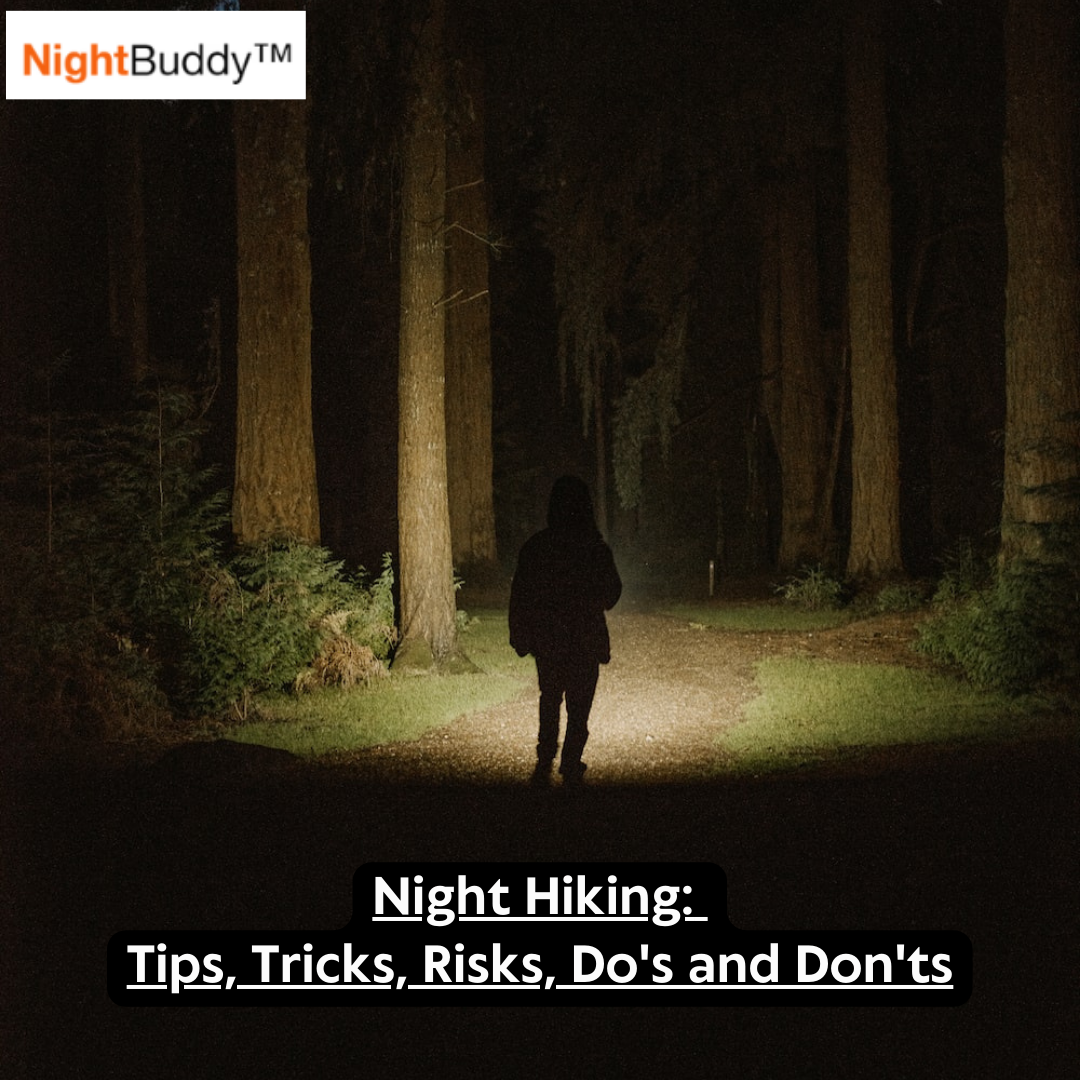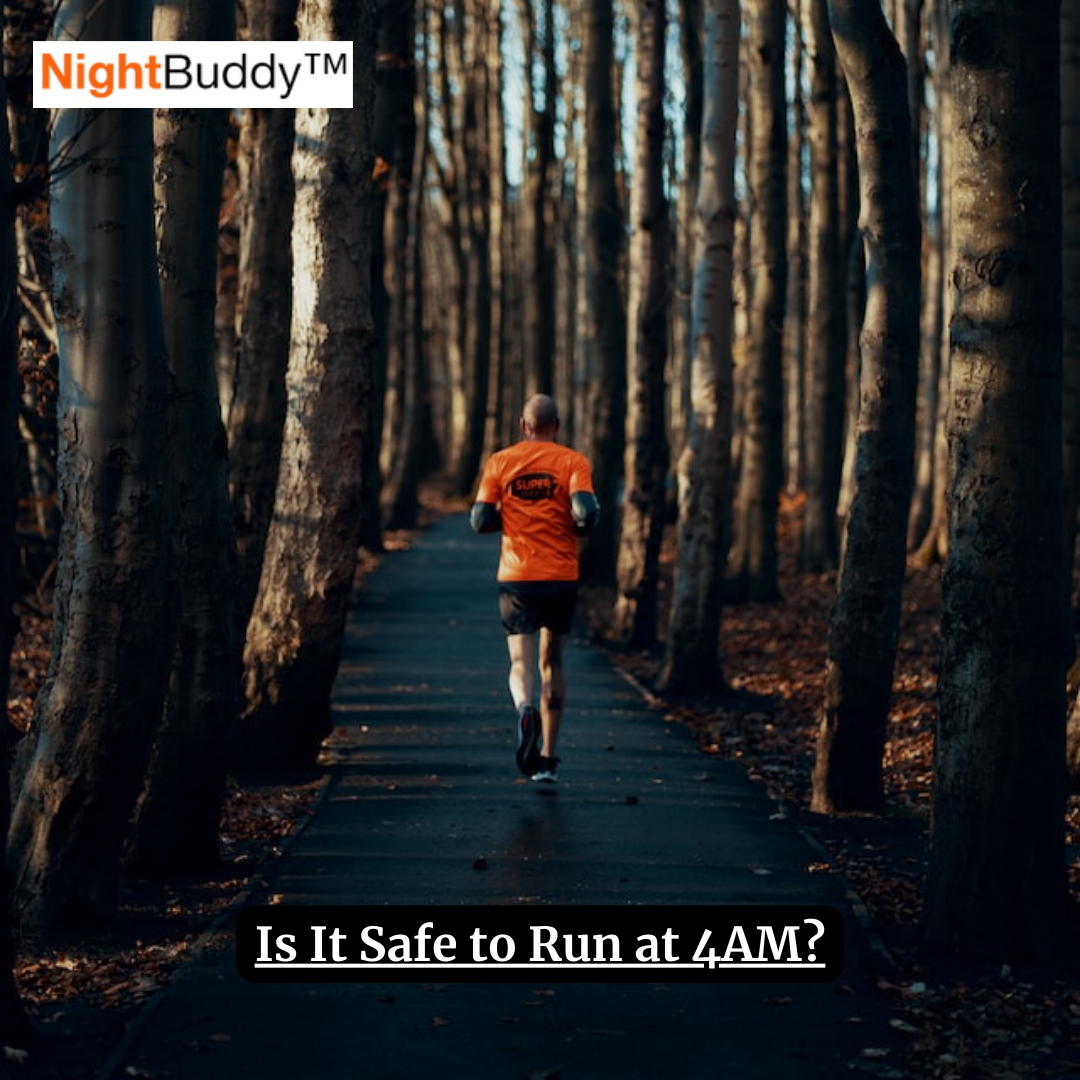If you love night hikes, you should know that staying alert is the most important tip. Also, hiking at night means you must carry protective and camping gear, head lamps camping and other essentials.
There are also many risks when you try night hiking. But, if you follow precautions, you can be safe. Plus, all this will help you have a secure and enjoyable hike.
You must love nighttime hiking because it's serene, quiet, less crowded, and has cooler temperatures. Also, the after-dark adventure will help you build your skill in hiking.
Here are some night hiking tips and risks to consider for a safe hike.
4 Risks of Night Hikes

Here are some risks of nighttime hiking:
#1 You can Lose Your way
Night sky and moonlit path may give you enough light but only sometimes. You need reliable light sources if you are hiking on a new moon or bad weather nights. This is because you can lose your way in the dark.
You can use flashlights, chest, waist, and headlamps. For example, the NightBuddy™ 230º LED Headlamp has perfect fire, and brightness settings, illumination controls, sensors, and great battery life.
Also, this is best for hiking and camping activities. But, if you want an overall light around the camp NightBuddy Rechargeable LED Lantern can be best.
Remember to carry extra batteries and charge them before the hike for the best night vision.
#2 Bad Weather Conditions
One of the most unpredictable things you can encounter is bad weather. There can be sudden cold nights, rains, winds, thunderstorms, etc. In this situation, you must relocate safely and wait for the extreme weather to pass.
Contact the emergency number or activate the safety apps on your mobile phone. Also, you must check the weather forecast before leaving for the hike.
#3 Wild Animals
Wild animal sightings become common in cold weather when they come to lower locations for food. You may also encounter some nocturnal animals.
Although many animals are harmless, they can attack if they think you are dangerous. For this, you should carry protective gear like bear spray, pepper spray, and sharp objects.
#4 Risk of injury
You must know that day hiking is different from night ones. In daytime hiking, you don't have to focus on the trail entirely.
But at night hiking, you have to concentrate on everything around you. For example, the uneven trail, branches, cliffs, water bodies, snow, etc.
If you are not skilled or concerted, there is a high risk of injuries. Also, calling for help while hiking at night is more difficult than day hiking.
6 Tips to Stay Safe at Night Hikes
Here are some tips for you to stay safe at night:
#1 Get Well Aware of the Trails
You must study everything about the route of hiking. If you're a beginner, choose familiar terrain.
If you are an experienced hiker, you should still study the trail, wildlife, weather, locals, and animals. Hiking at night can bring many surprises; go with a group if you need more confidence.
#2 Carry Right Camping Gears
You should have the right camping gear, like, a lightweight and waterproof tent, sleeping bag, trekking poles, foam mattress, and extra layers. It will elevate your hiking experience.
Also, pack according to the duration and weather of the hiking.
Remember to carry water, instant food, a burner, a canister, fuel, etc. Extra items like toilet paper, ignition tools, fuel, clothing, etc., are also important.

#3 Make Your Phone Ready
Always remember to carry a fully charged GPS-enabled phone. In addition, download offline maps of the trail on the phone beforehand to boost your protection.
Plus, activate emergency contacts and use safety apps. Carry a power bank in case of emergency.
#4 Carry Self-defence Essentials
You should follow all the safety tips on familiar or unfamiliar terrain. Also, if you are an experienced nighttime hiker or newbie, follow all the rules.
You should carry bear spray, bug spray, self-defence tools, insect repellents, first-aid kits, etc.
#5 Study the Weather and Advisory
You must be aware of the predicted weather of the route. There can be warning for extreme temperatures, nighttime temperatures, rain, hot climate, etc.
This will help you prepare accordingly; for example, you will carry extra water if it's hot.
Also, you will pack extra layers of clothing if it's too cold. A rain jacket, backpack, rain cover, etc., are also necessary.
#6 Tell Your Plans to Others
You may have advanced skills, but you can face risky situations anytime. So tell your friends and family about your route and plans.
You can also leave trail markers to mark your way.
Hiking at night gives a complete nighttime adventure. It's a rewarding experience, but you should prioritise your safety at night.
You can enjoy and be confident when you know everything about the trails and follow other hiking safety measures. So obey all the tips for the best hike at night.
Read also;





Leave a comment
This site is protected by hCaptcha and the hCaptcha Privacy Policy and Terms of Service apply.